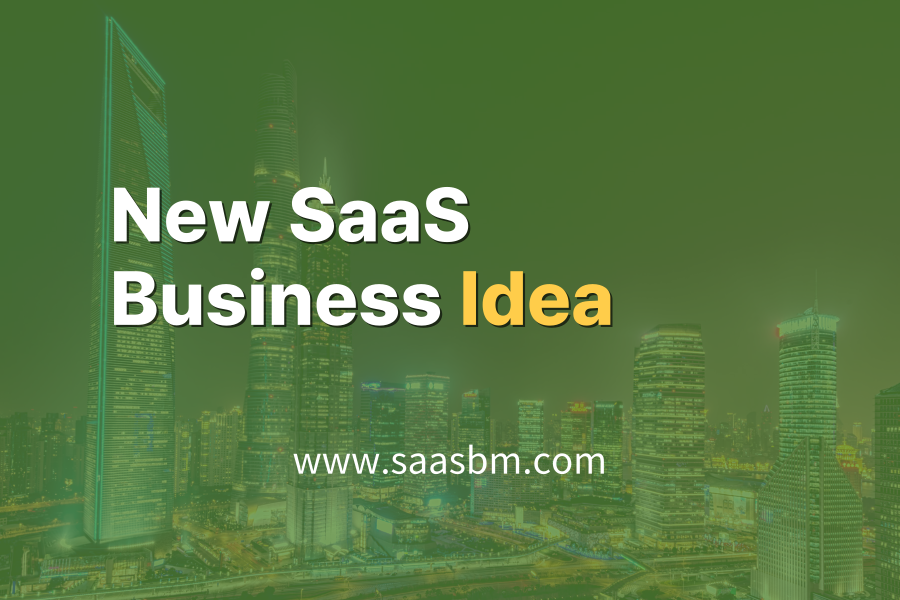Here are two new business ideas inspired by a benchmarked SaaS model.
We hope these ideas help you build a more compelling and competitive SaaS business model.
- Benchmark Report: Transform Your Team’s Productivity with Revolutionary AI Knowledge Management
- Homepage: https://klu.so
- Analysis Summary: Klu revolutionizes knowledge work by combining AI-powered search, document organization, and team collaboration to create a unified knowledge base that enhances productivity and insight retrieval.
-
New Service Idea: IndustryMind / MentorMind AI
Derived from benchmarking insights and reimagined as two distinct SaaS opportunities.

[swpm_protected for=”3,4″ custom_msg=’This report is available to Growth and Harvest members. Log in to read.‘]
![]()
1st idea : IndustryMind
Industry-specific AI knowledge ecosystems that connect companies, experts, and regulatory bodies.
Overview
IndustryMind creates specialized knowledge ecosystems for specific industries by leveraging the core AI knowledge management technology developed by Klu. The platform would serve as a collaborative space where companies, industry experts, regulatory bodies, and educational institutions can contribute, manage, and access industry-specific knowledge. Unlike Klu’s internal team focus, IndustryMind expands the concept to create multi-organizational knowledge networks that solve industry-wide challenges through collective intelligence and shared resources.
![]()
Who is the target customer?
▶ Regulatory bodies and standards organizations needing to disseminate and update compliance information
▶ Large enterprises looking to collaborate with suppliers and partners on industry innovation
▶ Educational institutions and professional training providers that need access to current industry practices
![]()
What is the core value proposition?
![]()
How does the business model work?
• Enterprise Subscription Model: Premium subscriptions for large organizations with advanced contribution capabilities, private spaces, and enhanced analytics
• Knowledge Marketplace: Commission-based model for specialized knowledge resources created by industry experts and sold through the platform
• API Integration Services: Fees for connecting IndustryMind to organizations’ existing knowledge management systems, ERPs, and workflow tools
![]()
What makes this idea different?
![]()
How can the business be implemented?
- Select a pilot industry vertical with established associations and collaborative culture (healthcare, aerospace, or financial services ideal first targets)
- Partner with leading industry association and 3-5 major enterprises to create founding knowledge contributions and define governance frameworks
- Develop industry-specific templates, taxonomies, and AI models based on Klu’s core technology but tailored to industry needs
- Launch beta platform with founding members and refine based on feedback for 3-6 months
- Expand to wider industry participation through association channels, focusing on knowledge contribution incentives and demonstrable ROI metrics
![]()
What are the potential challenges?
• Competitive concerns: Design governance systems with industry association oversight that define clear boundaries between shared knowledge and proprietary information
• Knowledge quality and relevance: Develop AI-driven quality assessment tools and community-based verification systems with expert review processes
• Adoption and active participation: Create gamification and recognition systems that reward valuable contributions, plus demonstrate measurable ROI from platform participation through analytics dashboards

2nd idea : MentorMind AI
AI-powered personal development platform combining human expertise with machine learning to create cognitive mentorship experiences.
![]()
Overview
MentorMind AI transforms personal and professional development by creating AI-enhanced mentorship experiences combining human expertise with machine learning. The platform captures the knowledge, experience, and cognitive approaches of exceptional mentors across various domains—from executive leadership to creative skills—and makes their wisdom accessible at scale. Using Klu’s knowledge management foundation, MentorMind builds personalized learning journeys that adapt to individual development needs while maintaining the nuanced guidance that typically only comes from one-on-one human mentorship.
![]()
Who is the target customer?
▶ Organizations looking to scale their leadership development programs more efficiently
▶ Educational institutions wanting to supplement student learning with industry expertise
▶ Expert mentors and coaches looking to expand their impact and create passive income streams
![]()
What is the core value proposition?
![]()
How does the business model work?
• Enterprise Licensing: Corporate licenses for leadership development programs with analytics dashboards showing employee growth and engagement metrics
• Mentor Partnership: Revenue sharing with expert mentors who contribute their knowledge, with compensation based on popularity and effectiveness metrics
• Specialized Mentor Programs: Premium pricing for specialized mentor experiences in high-demand areas like startup leadership, creative professions, or technical specializations
![]()
What makes this idea different?
![]()
How can the business be implemented?
- Recruit an initial cohort of 15-20 diverse, recognized expert mentors across 3-5 domains (executive leadership, creative fields, technical areas) to create founding mentor models
- Develop a specialized knowledge extraction methodology that captures not just what mentors know but how they approach problems and decision-making
- Build the core platform on Klu’s knowledge management foundation, adding mentor-specific features like progress tracking, scenario simulation, and personalized development planning
- Launch beta with limited user cohorts of 50-100 users per mentor model for intensive feedback and refinement
- Develop mentor attribution and compensation frameworks before scaling to wider availability through direct-to-consumer and B2B channels
![]()
What are the potential challenges?
• Overreliance on AI guidance: Design clear ethical frameworks around advice limitations and include periodic human mentor check-ins for critical development areas
• Measuring effectiveness of mentorship: Develop comprehensive analytics tracking both subjective satisfaction and objective development metrics tied to user goals
• Mentor recruitment and compensation: Create a transparent value proposition for mentors with clear intellectual property protections and tiered revenue sharing based on usage metrics
[/swpm_protected]

No comment yet, add your voice below!